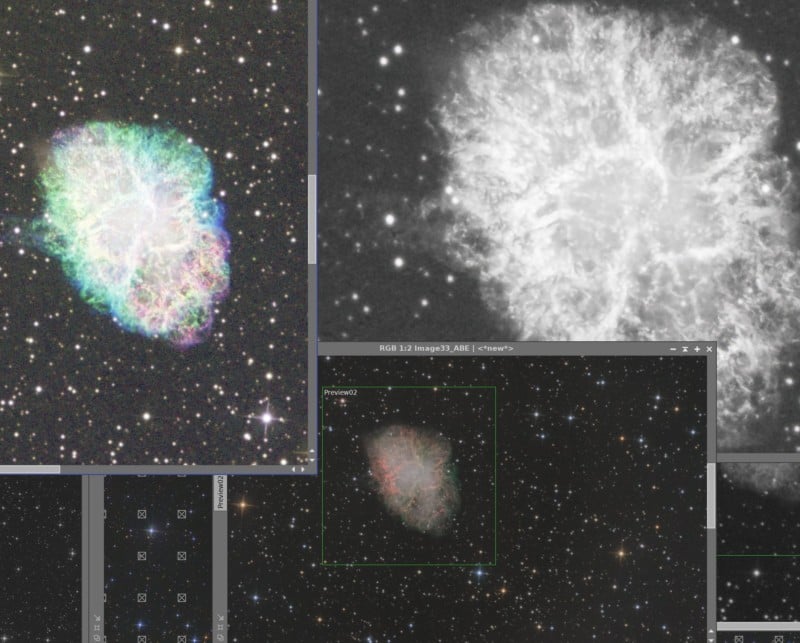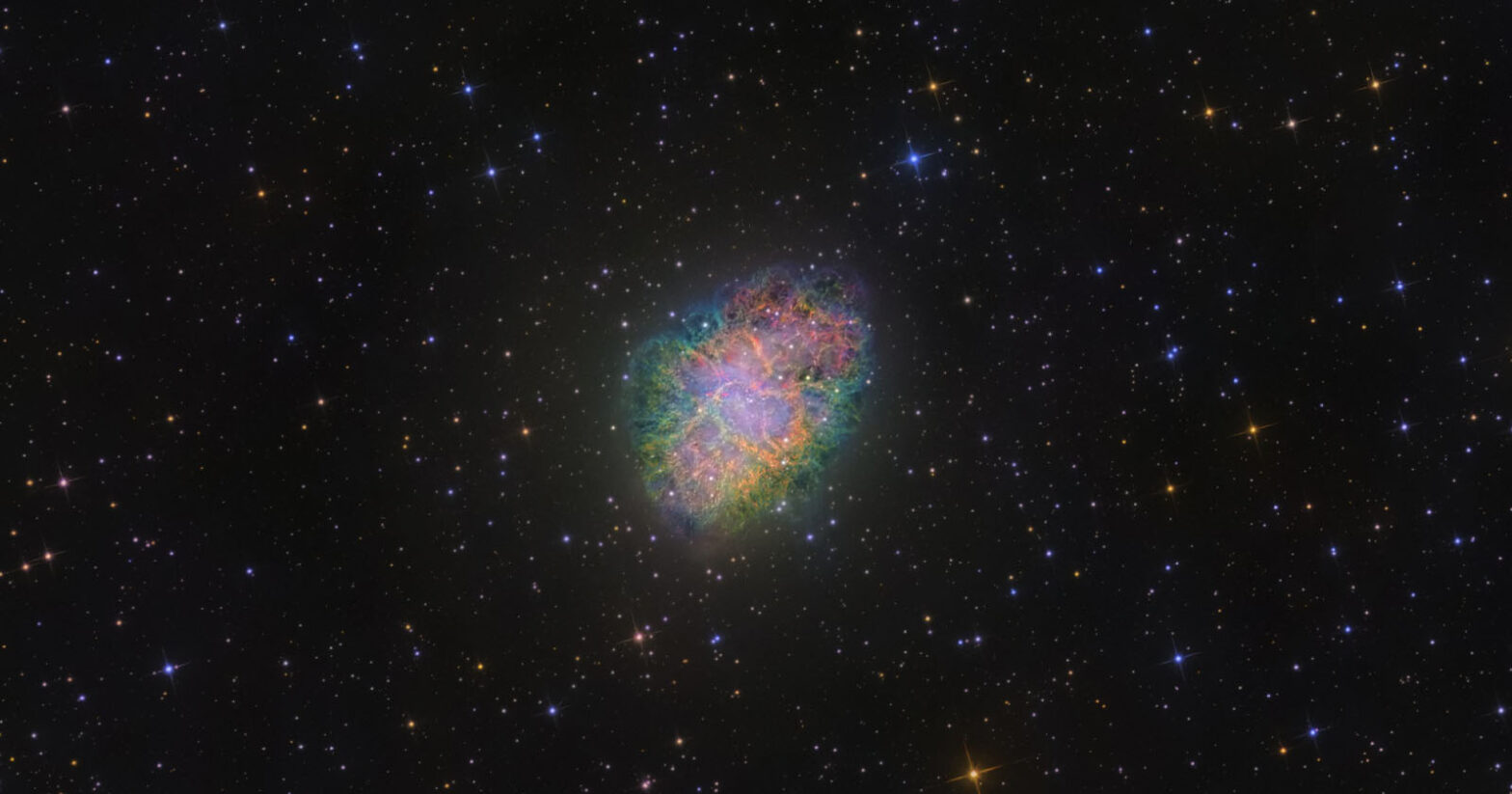[ad_1]
![]()
Astrophotographer Andrew McCarthy has captured a star that went supernova back in the medieval period.
McCarthy trained his telescope on the Crab Nebula, an outwardly expanding supernova remnant that exploded in 1054 A.D.
“It’s basically yesterday in a cosmic sense,” says McCarthy.
![]()
McCarthy used a 12-inch telescope and over the course of 40 hours imaging the Crab Nebula he used seven different filters.
“Going from the raw data to this final vibrant image is a science in itself, and where the bulk of the creative expression in this hobby comes from,” explains McCarthy on his Twitter feed.

Some users were astonished that McCarthy could achieve such an image from Earth.
“As long as I’m stuck here on Earth all my work will be too,” McCarthy quips.
Some even doubt the authenticity of McCarthy’s image. “I love the CGI art these days,” writes one skeptic.
But McCarthy simply encourages the naysayer to check out his RAW data on his Patreon channel.
Leading Astropohotgrapher
McCarthy is one of the foremost astrophotographers, consistently capturing some of the most incredible images of the universe.
He started his cosmic photography journey in 2017 when a total solar eclipse was taking place in the skies above the United States.
“Feeling inspired, I recalled fond memories from my childhood of looking through my dad’s telescope and seeing the planets in our solar system, and wondered if I could recreate that experience as an adult,” explains McCarthy on his website.
“It was with that goal I bought my first telescope, a 10-inch Dobsonian designed for visual astronomy.”
Since then, McCarthy has honed his capturing and editing skills, quitting his job in sales and marketing to pursue an astrophotographer career full-time.
He’s put out a series of remarkable photos, including this month when he captured Mars emerging from behind the Moon.
What is a Supernova?
According to NASA, a supernova is the biggest explosion that humans have ever seen. They can be caused by an enormous, dying star.
![]()
A star is normally balanced by gravity trying to squeeze it into the smallest, tightest ball possible. But the nuclear fuel burning in the star’s core creates strong outward pressure. This outward push resists the inward squeeze of gravity.
When a massive star runs out of fuel, it cools off. This causes the pressure to drop. Gravity wins out, and the star suddenly collapses.
A very dense core is left behind and an expanding cloud of hot gas, called a nebula, is created. The biggest stars can leave behind black holes.
More of McCarthy’s work can be found on his Instagram, Twitter, Patreon, and website.
Image credits: All photos by Andrew McCarthy.
[ad_2]
